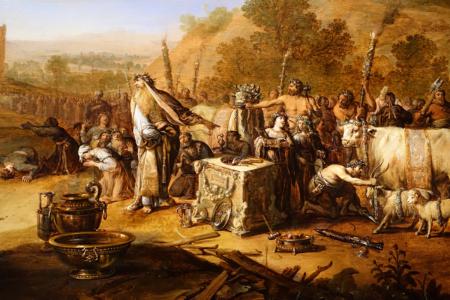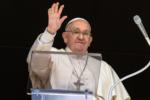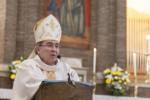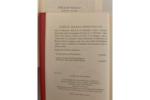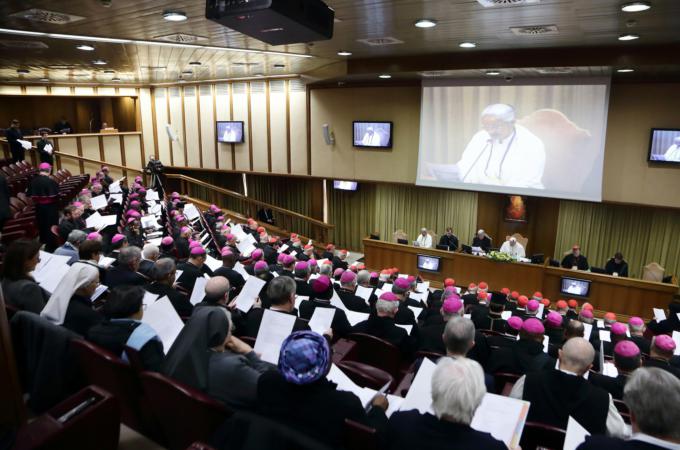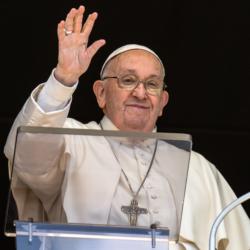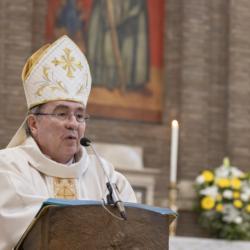From Cardinal Seán's blog
This past week, I have been in Rome for the meeting on the protection of minors in the Church.
The Holy Father has called this meeting of the presidents of the bishops' conferences from around the world, along with patriarchs of the various Eastern Rite churches and a number of religious superiors of men and women, to come together and reflect on safeguarding young people. This is the first time that this theme has been addressed in such a broad way in the Church, and there is great hope and expectation. The Holy Father is bringing this issue to the bishops of the world so they will take ownership of it and together be able to adopt a similar approach to try to overcome the grave errors that have been made in the past -- and help the Church focus on the victims of child abuse and work for their healing.
Our meetings consist of a number of presentations from people from around the world, including the testimony of victims.
Each talk is followed by a period of discussion in small groups, in which the bishops consider different, concrete responses that can be made to address safeguarding and see how the various individual bishops' conferences and conferences of religious can work together to bring healing and assure safety for young people.
The opening talk yesterday, February 21, was a spiritual and theological reflection on the situation given by Cardinal Tagle, which, I thought, provided a good beginning to our discussions.
Our meetings continued today, and in the afternoon I participated in the press briefing, along with Cardinal Cupich, Archbishop Scicluna, and Father Lombardi, in which we spoke about our meeting and had a chance to answer questions for reporters.
It was a blessing to reflect that one of the reasons this meeting came about was a proposal made by the members of the Pontifical Commission for the Protection of Minors following our September 2018 plenary. Shortly after, our Holy Father consulted the Council of Cardinals and approved this recommendation.
Pope Francis established our commission in 2014, and last year renewed our membership with 17 experts representing different fields in the safeguarding of minors from around the world.
Our mandate is twofold: First, to advise the Holy Father on all aspects of the protection of minors and vulnerable adults in the Church, including effective policies and procedures and, second, to offer our advice and support to local Churches around the world in their own work of safeguarding.
One new initiative is called "Survivor Advisory Panels," which we are currently piloting together with the episcopal conferences in Brazil, the Philippines, and Zambia. These panels are a means for bringing together victims, bishops, and other representatives of local churches, creating "safe spaces" in different cultural contexts for welcoming, listening to, and learning from victims/survivors of abuse. We have been working together on this project with the Episcopal Conference of England and Wales and the experts who assist them, developing this new model and hoping to support the active collaboration of victims and bishops in improving the Church's safeguarding efforts in their own countries.
A second major emphasis of our work during these past five years has been many different types of formation and education programs. Our commission members have actively contributed to providing over 250 educational events on six continents. These workshops and meetings include interdisciplinary teams of experts, providing great opportunities for our members to collaborate not only with national bishops' conferences but also with different regional groupings.
The third primary focus in our work is the safeguarding "Guidelines" that are to be issued in every local Church and every ecclesial institution, including all our religious orders, schools, hospitals, orphanages, etc. Our commission continues to develop a program to assist episcopal conferences to develop and to implement guidelines that reflect "best practices" from churches and other organizations around the world, expressed in the terms of their own local culture.
